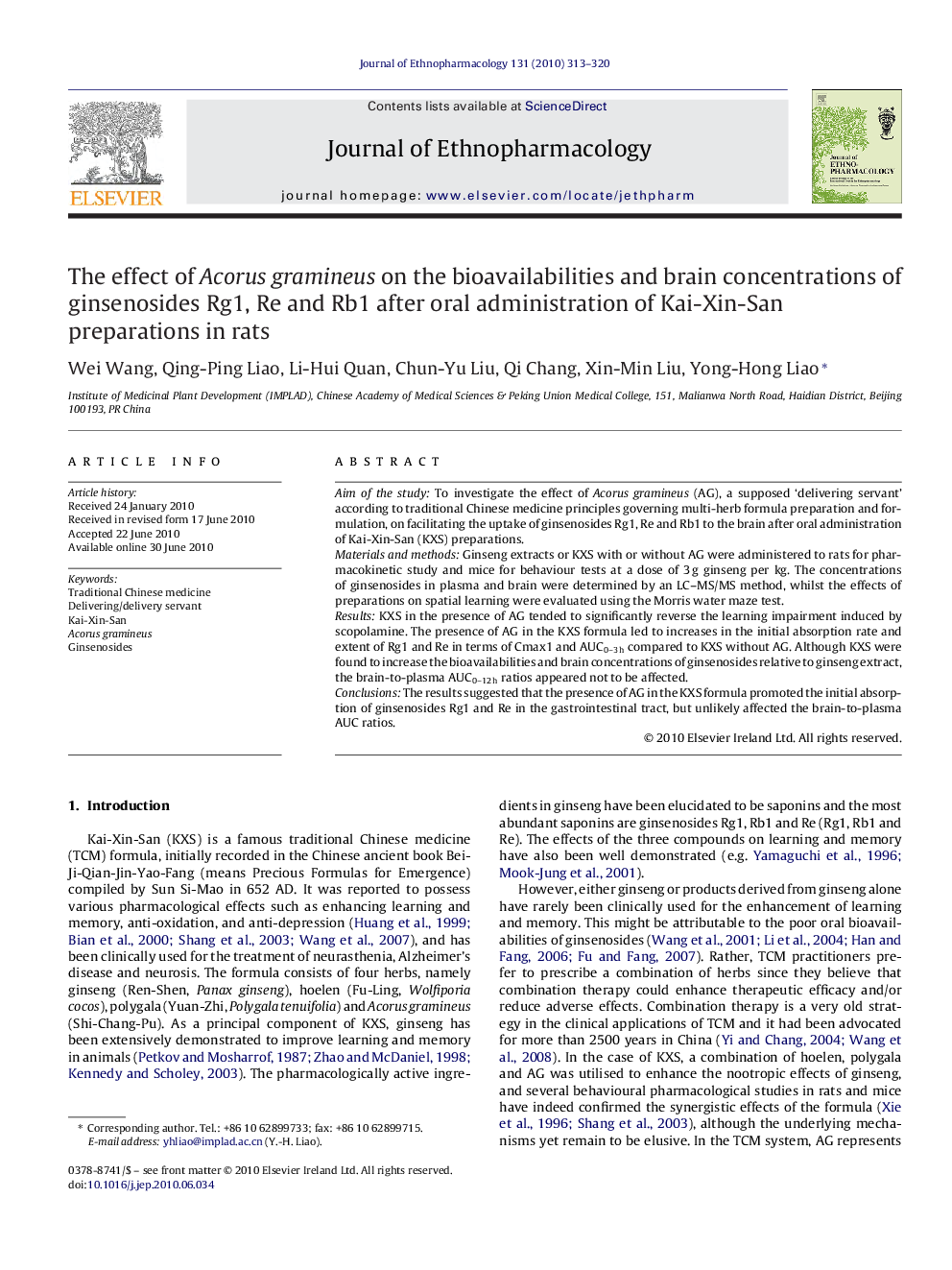| Article ID | Journal | Published Year | Pages | File Type |
|---|---|---|---|---|
| 2545983 | Journal of Ethnopharmacology | 2010 | 8 Pages |
Aim of the studyTo investigate the effect of Acorus gramineus (AG), a supposed ‘delivering servant’ according to traditional Chinese medicine principles governing multi-herb formula preparation and formulation, on facilitating the uptake of ginsenosides Rg1, Re and Rb1 to the brain after oral administration of Kai-Xin-San (KXS) preparations.Materials and methodsGinseng extracts or KXS with or without AG were administered to rats for pharmacokinetic study and mice for behaviour tests at a dose of 3 g ginseng per kg. The concentrations of ginsenosides in plasma and brain were determined by an LC–MS/MS method, whilst the effects of preparations on spatial learning were evaluated using the Morris water maze test.ResultsKXS in the presence of AG tended to significantly reverse the learning impairment induced by scopolamine. The presence of AG in the KXS formula led to increases in the initial absorption rate and extent of Rg1 and Re in terms of Cmax1 and AUC0–3 h compared to KXS without AG. Although KXS were found to increase the bioavailabilities and brain concentrations of ginsenosides relative to ginseng extract, the brain-to-plasma AUC0–12 h ratios appeared not to be affected.ConclusionsThe results suggested that the presence of AG in the KXS formula promoted the initial absorption of ginsenosides Rg1 and Re in the gastrointestinal tract, but unlikely affected the brain-to-plasma AUC ratios.
Graphical abstractKai-Xin-San with or without of Acorus gramineus increased the bioavailabilities and brain concentrations of ginsenosides relative to ginseng extract, but did not affect the brain-to-plasma AUC0–12 h ratios.Figure optionsDownload full-size imageDownload as PowerPoint slide
